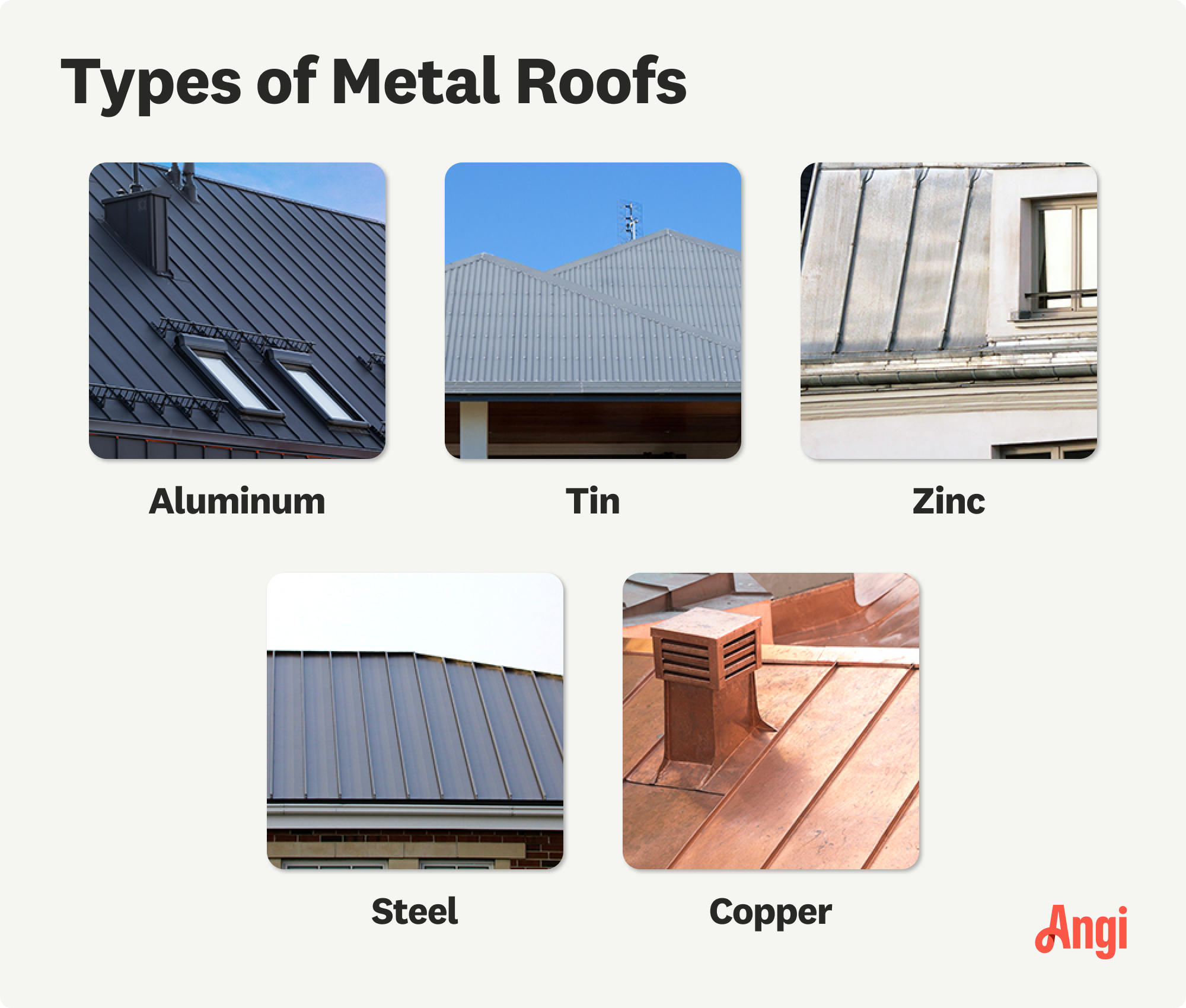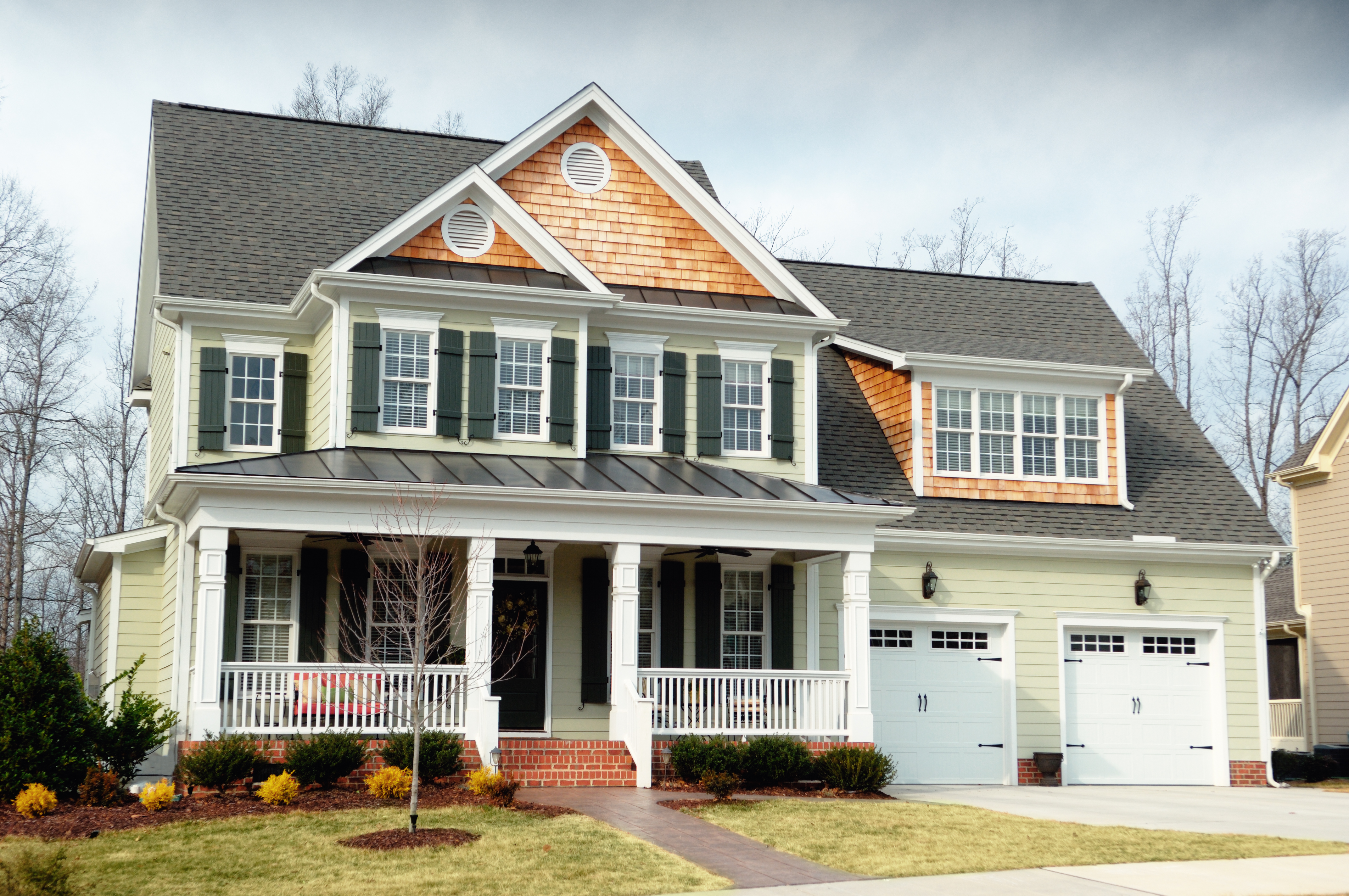
Learn about roof replacement costs in Columbus and what factors are at play to budget accurately and make sure you’re getting a fair price.
Roofing costs depend on your project and location. Check with a local pro for your specific job.
The size of your roof and the type and style of metal roofing you choose will affect your costs the most.
Metal roofs cost an average of $11 per square foot but can climb to $30 per square foot for high-end copper.
Metal roofs reflect the intense sunlight in Phoenix and can help reduce cooling costs through the sweltering summers.
Invest in a thicker metal roof gauge to avoid denting and related damage during the monsoon season.
Metal roof costs in Phoenix average $20,163, and most projects total between $5,992 and $34,334. Your price will depend mostly on the size of your roof and the type of metal you choose, but roof style and gauge also play a role. Many homeowners choose to add roof insulation for an average of $1,000 to help combat the intense summer heat.
Metal roofs in Arizona can cost anywhere from $3,500 to $42,753, and there are a handful of factors that will determine where your total falls in that range.
The most significant cost factor to consider is the size of your home. Metal roofers in Phoenix price your project based on roof size, with an average cost of $10 to $12 per square foot. Larger roofs require more materials and labor and will drive up your total price.
A 1,612 square foot home in Phoenix will have a roof spanning roughly 1,900 square feet, putting the average cost of a total roof replacement between $19,000 and $22,800.
| Home Size (Sq. Ft.) | Average Cost |
|---|---|
| 1,000 | $14,300 |
| 1,500 | $19,800 |
| 1,600 | $20,900 |
| 2,000 | $24,200 |
| 2,500 | $30,800 |

The cost per square foot for a metal roof can also range widely, from $4 to $30, depending on the type of metal you choose.
Aluminum and tin cost the least but expand and contract more in the extreme summer heat in Phoenix, which can cause issues over time. Coated steel is the most common option and provides the best value, balancing up-front cost and longevity.
Zinc is a unique option that costs around the same as steel but is less widely available. Copper is the most expensive but adds the most value to your home and lasts the longest in Phoenix’s extreme temperatures.
| Type of Metal | Cost Range |
|---|---|
| Aluminum | $6,400–$17,600 |
| Copper | $24,000–$48,000 |
| Steel | $9,600–$25,600 |
| Tin | $8,000–$19,200 |
| Zinc | $9,600–$19,200 |
In addition to the type of metal, you’ll have three main options for the type of metal roof you install. Corrugated metal is the most affordable, but most homeowners find it the least attractive. Metal shingles add a unique flair to your home and are more affordable than standing seam metal roofs, but they aren’t as widely available as the other options. Standing seam metal roofs are the most common, but they come with the highest per-square-foot costs.
Metal shingles are more prone to leaks than standing seam roofs, which have fewer gaps and seals. However, this isn’t a major consideration in Phoenix, where rainfall is scarce. Your decision will mostly be based on up-front cost, availability, and your personal preference.
| Roof Style | Average Cost | Pros | Cons |
|---|---|---|---|
| Corrugated | $14,800 | Affordability | Curb appeal |
| Metal shingles | $23,200 | Unique aesthetic | Availability |
| Standing seam | $29,600 | Availability | Up-front cost |
Metal roofs come in different thicknesses, ranging from 22-gauge (the thickest option) to 29-gauge (the thinnest option). Thicker metal roofing will drive up your material costs, but going with a 22-gauge or 24-gauge roof in Phoenix is wise. The city sees frequent monsoon activity and occasional hailstorms that can dent metal roofs. Thicker metal roofs will resist damage better and are worth the investment.
Metal shingle roofing has reflective pigments to act as radiant barriers, and their shape creates an air gap or thermal break between the metal and the roof deck, stopping conductive heat transfer, making them great for summer efficiency.
Metal roofs are popular in hot climates like Phoenix because they reflect sunlight and can reduce solar heat gain inside your home. You can go the extra mile to improve your home’s energy efficiency and reduce cooling costs by adding insulation under your metal roofing. This will add between $1,000 and $1,500 to your total, depending on the size of your home.
You can also improve your home’s energy efficiency by choosing a lighter-colored metal, which will maximize how much solar heat your roof reflects.
The labor to install a metal roof in Phoenix costs an average of $10,100. The cost of living in Phoenix is close to 8% higher than the national average, so your labor costs will be higher than you’d see elsewhere in the country.
However, it’s still worthwhile to have a roofer in Phoenix handle the work, as a professional installation will maximize curb appeal and reduce the risk of uplift and related damage from extreme weather in the area. Phoenix doesn’t require specialty roofer licenses, so just make sure your professional holds a general contractor’s license.
The roofer you hire will also need to pull a building permit for the roof replacement. While you won’t be responsible for the paperwork or scheduling the inspection, you will have to pay the permit fee. The City of Phoenix charges a base fee of $231 for the first $10,000 worth of work plus $8 for every additional $1,000 worth of work. Given the cost of a metal roof in Phoenix, your permit will cost an average of $319.
A metal roof will increase your home value and provide an average return on investment (ROI) of 50%. However, metal roofs stand up better than asphalt shingles to the occasional extreme weather in Phoenix, and they reflect sunlight and help regulate indoor temperatures. As such, you’ll likely see a higher bump in home value when you opt for a metal roof in Phoenix.
Home is the most important place on earth, which is why Angi has helped more than 150 million homeowners transform their houses into homes they adore. To help homeowners with their next project, Angi provides readers with the most accurate cost data and upholds strict editorial standards. We survey real Angi customers about their project costs to develop the pricing data you see, so you can make the best decisions for you and your home. We pair this data with research from reputable sources, including the U.S. Bureau of Labor Statistics, academic journals, market studies, and interviews with industry experts—all to ensure our prices reflect real-world projects.
Want to help us improve our cost data? Send us a recent project quote to [email protected]. Quotes and personal information will not be shared publicly.
From average costs to expert advice, get all the answers you need to get your job done.

Learn about roof replacement costs in Columbus and what factors are at play to budget accurately and make sure you’re getting a fair price.

If your metal roof needs a repair, it’s best to hire a roofing professional to handle it safely. Stay tuned to learn about cost factors for metal roof repair.

Dealing with a visibly damaged roof or leak? Learn about roof repair costs in Columbus to see how much you’ll need to budget for a permanent solution.

If you've decided to skip the shingles, what type of roof tiles are the best for your home? Let's weigh the pros and cons of each popular type of roof tile on the market.

Roof insulation types include batts, spray foam, rigid foam boards, and fiber cement boards. Keep reading to learn which roof insulation is best for your home.

When building a new home, adding a gable roof can deliver a timeless, classic style. Learn about the seven most popular types of gable roofs.